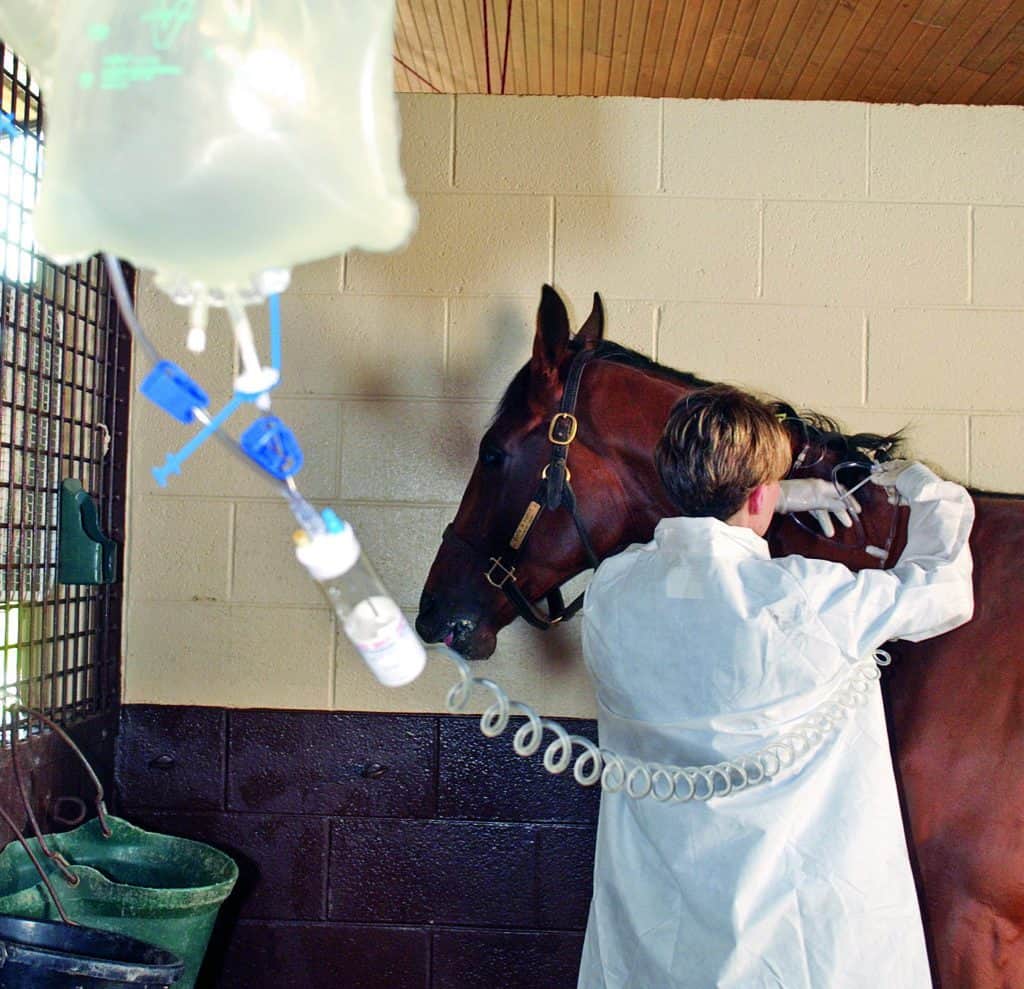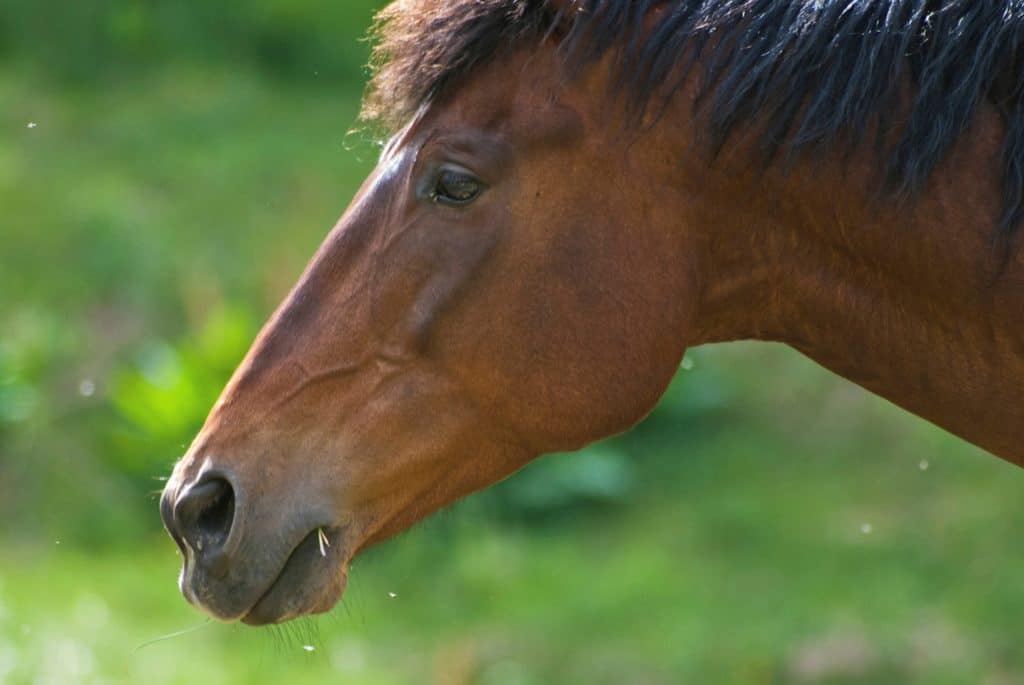
IDDSP Surgery Type’s Impact on Race Performance
Racing performance was unaltered regardless of which technique was used to correct soft palate displacement.

Racing performance was unaltered regardless of which technique was used to correct soft palate displacement.
Research topics include musculoskeletal and respiratory issues, parasites on stud farms, early pregnancy loss, and more.

Researchers found that bloody nasal discharge was common in horses with Klebsiella pneumonia.

Causes of epistaxis—bleeding from the nose—can range from mild to life-threatening conditions. Here’s what to know.
Confirmed diseases include vesicular stomatitis, EHV, influenza, Hendra virus, equine infectious anemia, and more.

Researchers found a “strong association” between horses developing asthma after contracting a rhinitis virus.

The 10th International Equine Infectious Diseases Conference will convene April 4-8 in Buenos Aires, Argentina.

Learn how to make changes around the barn to reduce horses’ likelihood of developing respiratory disease.
Research topics include EHV-1 latency, foal pneumonia, training and surface factors in preventing injury, and more.

In the battle against strangles, researchers believe they’ve discovered a critical genomic influence: war.

Be mindful of the associated health risks and understand how to best manage your horse before and after air travel.

Of the 802 respondents, 170 (21%) said they use a stall freshener or deodorizer on an as-needed basis.
The AAEP released a list of research topics identified by a panel as central to the goal of understanding EIPH.
The University of Kentucky Veterinary Diagnostic Laboratory offers real-time polymerase chain reaction assay testing for Rhodococcus equi.

Asthmatic horses’ clinical signs worsened when temperature and humidity increased suddenly, researchers found.

Peat might not be pretty, but study results suggest it might be better for your horse’s health than wood shavings.
Stay on top of the most recent Horse Health news with
"*" indicates required fields